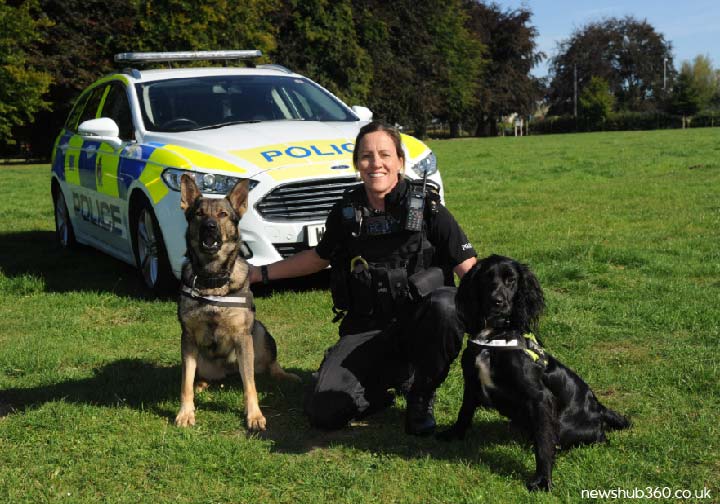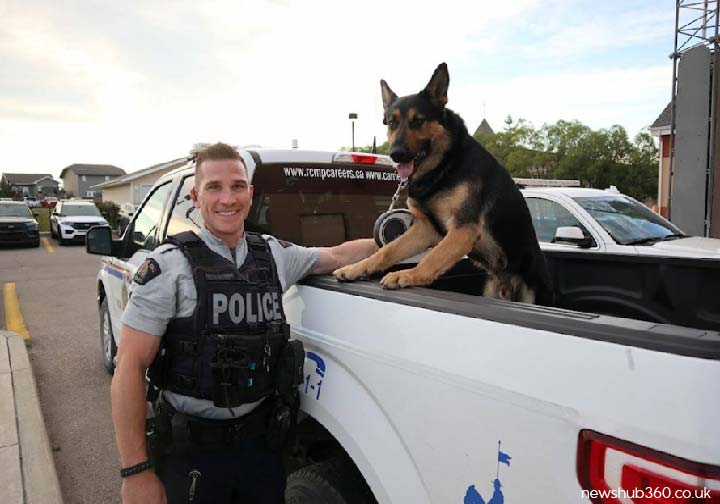Dogs have long been our loyal companions, but when it comes to police work, these canines are much more than pets—they are essential team members. Police dogs are trained to perform a variety of critical tasks that help keep our communities safe. From sniffing out drugs to chasing down suspects, these highly skilled animals are heroes in their own right. In this article, we’ll explore the latest news and updates about police dogs, shedding light on their extraordinary work and the impact they have on law enforcement.
The Role of Police Dogs
Police dogs, or K9s, play a crucial role in modern law enforcement. They assist officers in a variety of tasks including tracking criminals, detecting drugs and explosives, and even crowd control. Imagine a police dog as the ultimate partner in crime-fighting, combining keen senses with specialized training to tackle complex situations.
Training and Skills
Training a police dog is no simple feat. These dogs go through intense training courses to improve their abilities. This includes basic obedience, advanced commands, and specialized techniques tailored to their specific roles. The process can take months, and it’s akin to a marathon, where endurance, patience, and precision are key.
Recent Success Stories
Recently, police dogs have been involved in several high-profile cases. From locating missing persons to apprehending dangerous suspects, these success stories highlight the invaluable contributions of these canine officers. For example, in a recent case, a police dog successfully tracked down a fugitive who had been on the run for months. Such stories underscore the exceptional capabilities of these animals.
The Impact on Law Enforcement
The integration of police dogs into law enforcement agencies has had a profound impact. They enhance the efficiency of operations, often leading to quicker resolutions in critical situations. The ability of a police dog to detect substances or track a suspect can significantly shorten the time it takes to resolve a case, making communities safer.
Challenges Faced by Police Dogs
Despite their impressive abilities, police dogs face several challenges. They can suffer from stress due to the high-pressure nature of their work, and physical injuries are not uncommon. Additionally, maintaining their health and well-being requires constant vigilance and care from their handlers and veterinary professionals.
Technology and Innovation
Advancements in technology are also benefiting police dog units. Innovations such as GPS tracking, new training equipment, and advanced health monitoring systems are helping to enhance the performance and safety of these canine officers. For instance, GPS tracking allows handlers to keep a close eye on their dog’s location during a search or pursuit.
Community Outreach and Education
Police dogs also play a role in community outreach and education. Many law enforcement agencies conduct demonstrations and educational programs to show the public what these dogs can do. These events help to foster a better understanding and appreciation of the work that police dogs and their handlers perform.
Famous Police Dogs
Throughout history, several police dogs have achieved fame for their heroic deeds. Dogs like K9 Rex and K9 Axel have made headlines for their bravery and skill. These canine heroes often serve as ambassadors for their breed, showcasing the incredible potential of police dogs to the world.
Legislation and Support
Legislation and public support play a vital role in the welfare of police dogs. Various laws and initiatives aim to ensure that these dogs receive proper care and respect. Support from the community, such as fundraising efforts and advocacy, helps to provide the necessary resources for their training and medical needs.
How to Support Police Dogs
There are several ways the public can support police dogs. Volunteering, donating to organizations that support K9 units, and participating in community events are great ways to contribute. Every bit of support helps ensure that police dogs continue to receive the care and training they need to perform their important duties.
Future Trends in K9 Units
Looking ahead, the future of K9 units is promising. Trends include the development of more advanced training methods, increased use of technology, and a greater focus on the health and well-being of police dogs. As law enforcement agencies continue to adapt and innovate, police dogs will remain an essential part of their operations.
The Bond Between Officer and Dog
The relationship between a police officer and their dog is built on trust and mutual respect. This bond is crucial for effective teamwork and can greatly influence the success of their joint operations. The strong connection between handler and dog is often a key factor in achieving their goals.
Mental Health and Well-being
Ensuring the mental health and well-being of police dogs is as important as their physical health. Stress management, regular check-ups, and a supportive environment are essential to keep these canine officers in peak condition. A happy and healthy police dog is more likely to perform well and remain a reliable partner in the field.
Training Techniques
Effective training techniques are crucial for the success of police dogs. These techniques range from basic obedience to complex tasks specific to their roles. Continual training and practice help to maintain their skills and ensure they are always ready for action.
Resources for More Information
For those interested in learning more about police dogs, various resources are available. Websites, books, and documentaries provide valuable insights into the world of K9 units and the incredible work they do. Exploring these resources can deepen your understanding and appreciation of police dogs.
Conclusion
Police dogs are more than just working animals; they are invaluable assets to law enforcement. Their specialized training, dedication, and skills make them crucial partners in maintaining public safety. As we continue to support and appreciate these remarkable animals, we ensure that they can keep performing their essential roles effectively.
FAQs
1. What are the main roles of police dogs?
Police dogs assist with tracking criminals, detecting drugs and explosives, and crowd control, among other tasks.
2. How are police dogs trained?
Police dogs undergo extensive training that includes obedience, specialized skills, and scenario-based exercises.
3. What challenges do police dogs face?
Police dogs face challenges such as stress, physical injuries, and the need for ongoing health care.
4. How can the public support police dogs?
The public can support police dogs by volunteering, donating to related organizations, and participating in community events.
5. What are some recent success stories involving police dogs?
Recent success stories include police dogs locating missing persons and apprehending suspects in high-profile cases.



